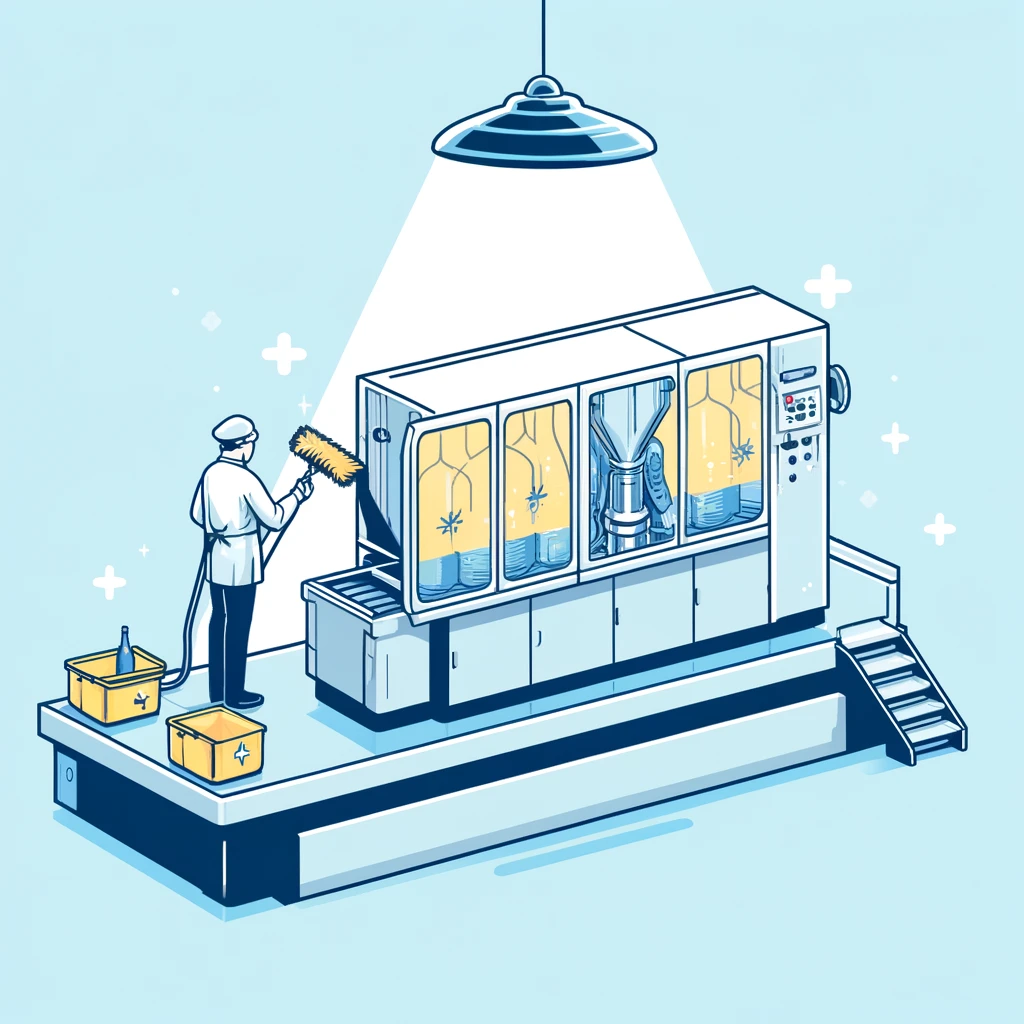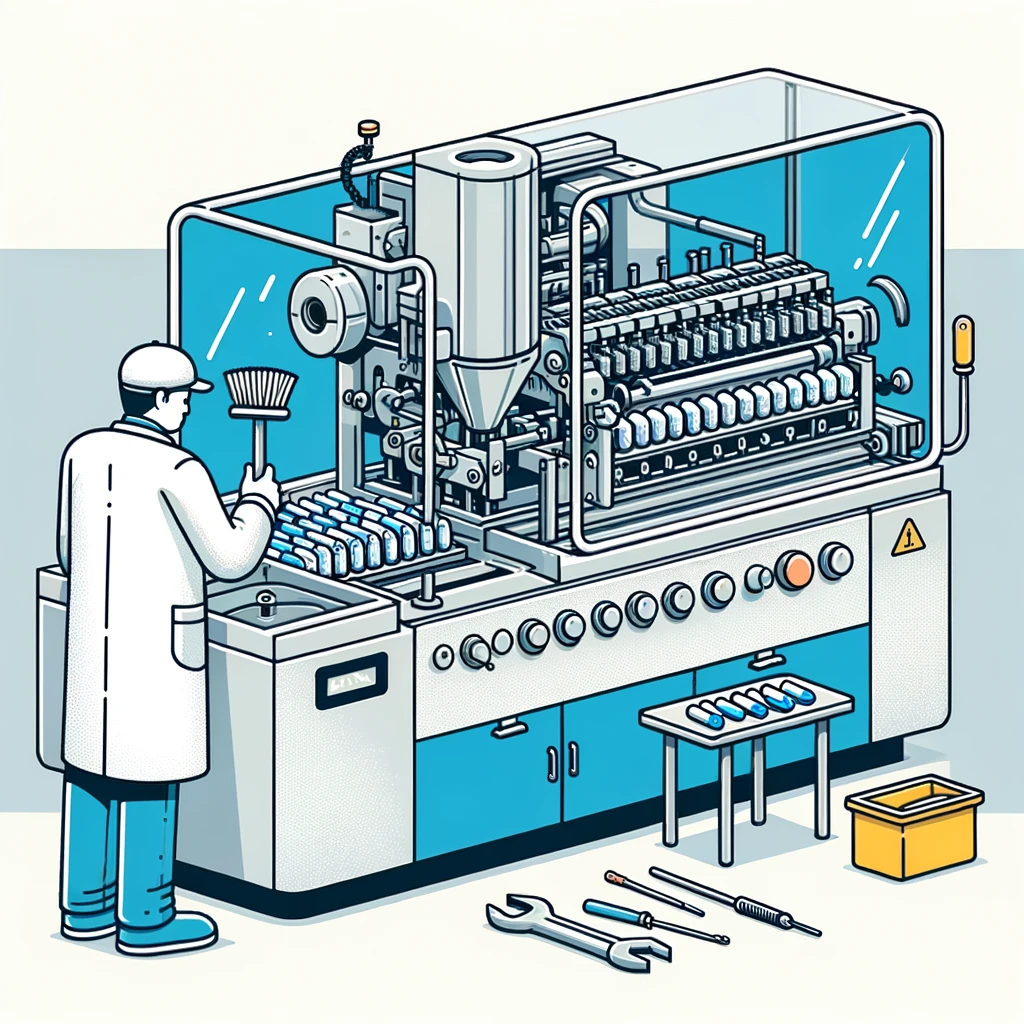
20 Aug Tips for Effective Maintenance and Cleaning of Key Equipment
In the pharmaceutical manufacturing industry, maintaining high-quality standards is not just a regulatory requirement; it’s a commitment to patient safety and efficacy of medications. This pursuit of excellence underscores the critical importance of industrial maintenance, especially concerning key equipment like capsule filling machines, tablet presses, and blister packing machines. These machines are the backbone of pharmaceutical production processes, enabling the mass production of medications with precision and reliability.
Introduction
The pharmaceutical industry’s ability to supply large quantities of high-quality capsules and tablets hinges significantly on the functionality and reliability of its machinery. Among these, the automatic capsule filling machine stands out as a pivotal innovation. Its role extends beyond mere functionality; it ensures that the operational efficiency of the capsule filling process meets the stringent standards of the medical field. Thus, the maintenance of such equipment by skilled industrial maintenance technicians becomes indispensable to the industry’s success.
Part 1: Capsule Filling Machines
A. Role and Importance
Automatic capsule filling machines have revolutionized the pharmaceutical industry, offering unparalleled efficiency and precision in the production of hard gelatin capsules. Utilized for a broad spectrum of formulations—including granules, pellets, and powders—these machines facilitate the seamless production of capsules in substantial volumes. With the aid of cutting-edge technology such as tamping pin technology, these machines ensure the accurate formation and filling of capsules, thereby adhering to the exacting quality standards expected in pharmaceutical production.
B. Maintenance and Cleaning
1. Maintenance Techniques
Preventive Maintenance: Regular maintenance schedules are critical to preemptively addressing potential machine failures. By adhering to a preventive maintenance program, maintenance technicians can significantly reduce downtime and extend the machine’s lifespan.
Predictive Maintenance: Leveraging data and technology to predict when a machine might fail or when parts may wear out allows for maintenance to be performed just in time, reducing unnecessary maintenance operations and ensuring machines are not taken out of production unexpectedly.
Reactive Maintenance: Despite the best efforts, machines can sometimes fail without warning. In these instances, a swift reactive maintenance process, facilitated by a skilled industrial maintenance technician team, is vital to minimize production disruptions.
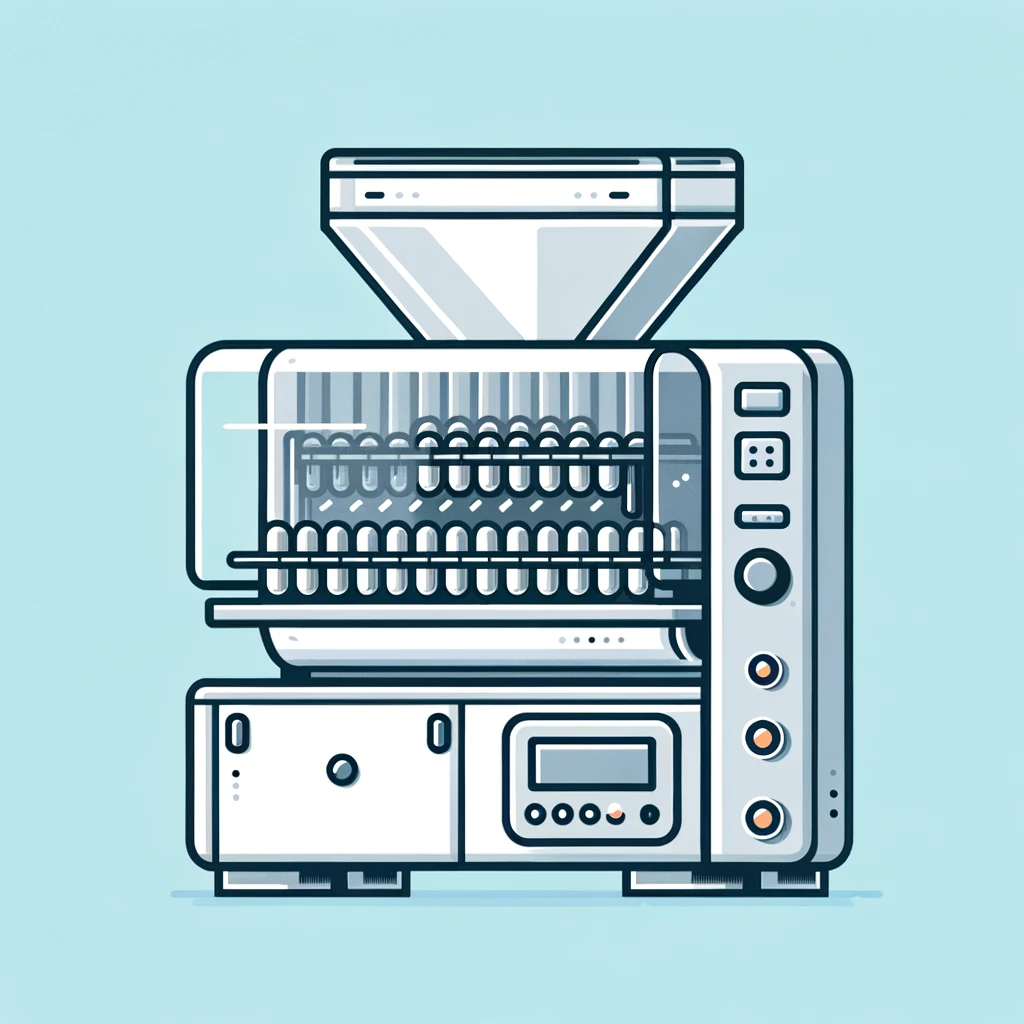
2. Cleaning Process
The cleaning process for capsule filling machines is as critical as the maintenance routines. It involves several key steps:
-
Initial Dusting and Vacuuming: Using brushes and vacuum cleaners to remove dust and debris from the machine’s surface and internal components.
-
Use of Detergents and Disinfectants: Cleaning and disinfecting with recommended solutions, such as purified water and 75% ethanol, to ensure the machine is free from contaminants that could affect the production quality.
-
Attention to Critical Components: Special care is given to cleaning the turn table, vacuum systems for capsule separation, and the enclosed dosing system. These areas are crucial for minimizing dust and ensuring the accurate filling of capsules.
The maintenance and cleaning of capsule filling machines are paramount for several reasons, from ensuring the efficiency and reliability of the production process to meeting the regulatory compliance and safety standards of the pharmaceutical industry. Regular and meticulous maintenance, conducted by industrial maintenance technicians, not only helps in keeping the machines in optimal condition but also plays a crucial role in the overall productivity and sustainability of pharmaceutical manufacturing operations.
The Essential Role of Maintenance Technicians
Industrial maintenance technicians are the unsung heroes in this scenario. Their expertise in handling complex machinery, from semi-automatic capsule filling machines to powder mixer blending machines, ensures the smooth operation of the production line. They are tasked with a broad spectrum of responsibilities, including installation, regular checks, repairs of moving parts, and ensuring the technology operates at peak efficiency.
The commitment to regular maintenance, spearheaded by these technicians, embodies a proactive approach to minimizing operational costs, enhancing training and reliability, and ensuring the performance and longevity of critical pharmaceutical equipment. Their work not only supports the industry’s bottom line but also its capacity to meet the ever-growing demand for medications worldwide, illustrating a profound connection between machine maintenance and the overarching goals of the pharmaceutical industry.
In the pharmaceutical industry, the importance of tablet press machines for tablet manufacturing is undeniable. They efficiently produce tablets of various specifications and dosage forms, making them an indispensable piece of equipment in drug production. Tablet presses come in various types, including single rotary (single punch), double rotary (double punch), and mini tablet presses, each with its characteristics and applications, thus meeting the diversified production needs of different scales.
B. Maintenance Tips
1. General Maintenance Advice for All Types of Tablet Presses
Maintaining tablet press machines is key to ensuring their stable operation and extending their lifespan. Conducting regular inspections and maintenance, including cleaning and lubricating the tablet press, forms the foundation for preventing failures and maintaining optimal equipment performance. Maintenance tasks also include checking and replacing damaged parts, maintaining a spare parts inventory, and using compressed air to clean the interior of the equipment to remove accumulated dust and residues.
2. Specific Maintenance Strategies for Single and Double Rotary Tablet Presses
For single rotary tablet presses, the maintenance focus includes cleaning and lubricating parts such as the hopper, fill stations, compression rollers, and punches. Regular maintenance of these components is essential for the smooth continuation of the tablet pressing process.
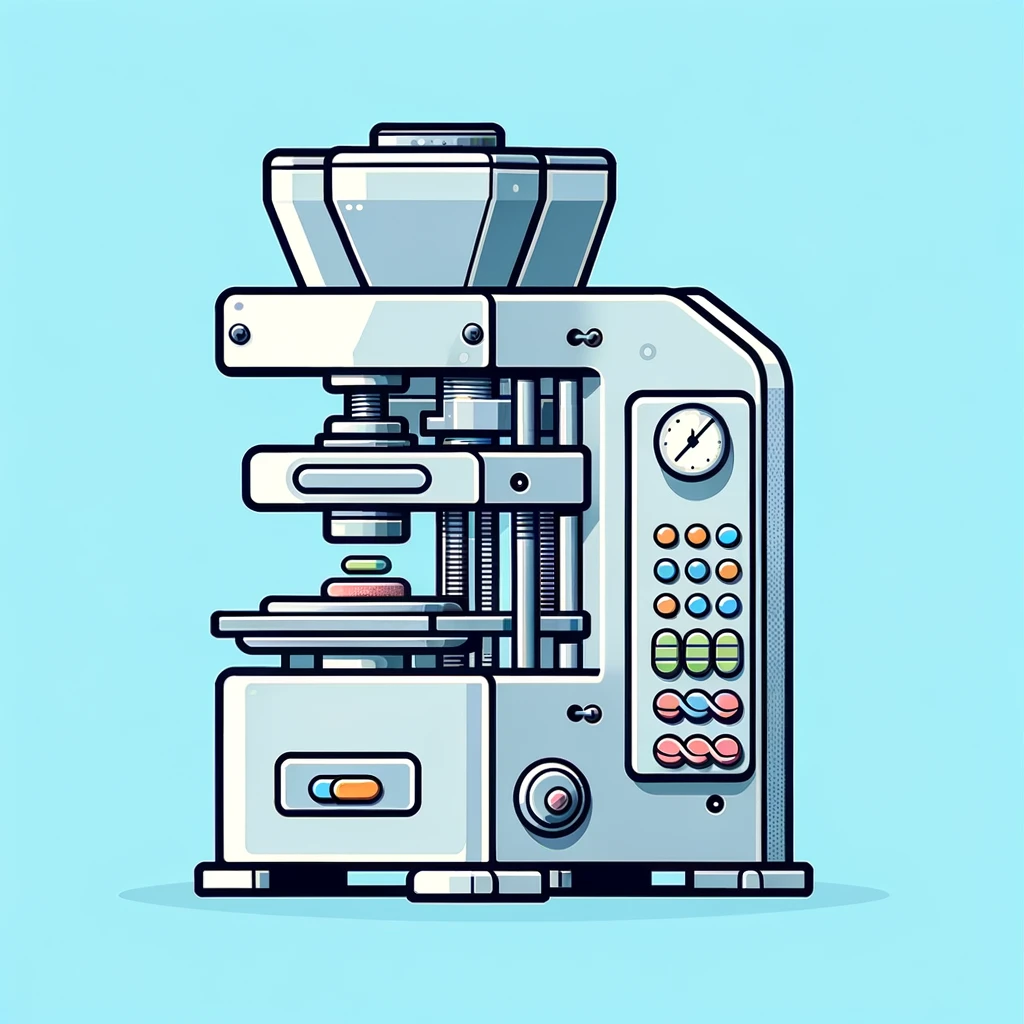
Double rotary tablet presses, in addition to the above maintenance, require extra attention to the cleaning of components such as the feeding system and discharge chute due to their more complex structure. These components are key to handling granular materials and must be kept free from dust or other unwanted particles.
3. Mini Tablet Press Maintenance Focus
Due to their smaller size and lower processing capacity, mini tablet presses are relatively simple to maintain. The focus should be on removing powder particles that stick to different parts of the machine and checking electrical components to prevent and repair possible malfunctions. Maintaining the equipment under constant temperature and appropriate humidity conditions is also very important for the normal operation of mini tablet presses.
The Significance of Maintenance
Proper maintenance can not only increase the lifespan of tablet presses but also reduce unnecessary trouble caused by equipment failures. By implementing preventive maintenance (such as regular cleaning and lubrication), predictive maintenance (based on equipment performance data), and when necessary, reactive maintenance (repairing damaged parts), the reliability and production efficiency of the equipment can be significantly enhanced. Maintaining a spare parts inventory is crucial for quickly responding to and repairing damaged parts, and using compressed air for equipment cleaning is an efficient method to ensure internal cleanliness, reducing potential impacts of contaminants on tablet quality.
In summary, the maintenance of tablet presses is an ongoing process that requires the expertise and skills of maintenance technicians. Through regular inspections, cleaning, and necessary repairs, the stable operation of tablet presses can be ensured, supporting the efficiency and safety of the entire pharmaceutical production process.
Part 3: Blister Packing Machines
A. Blister Packing Machine Functionality
Blister packing machines play a crucial role in the pharmaceutical industry by packaging products securely and efficiently, ensuring the integrity and longevity of the medications. These machines are designed to form, fill, and seal products in blister packs, which are essential for protecting the product from environmental factors and contamination. Key components that require operational checks before use include the forming plate, sealing plate, and the gauge for pressure difference, ensuring the machine operates within the specified limits.
B. Maintenance and Cleaning Procedures
Maintaining a regular cleaning and maintenance schedule for blister packing machines is vital to ensure their optimal performance and longevity. Recommended tools and materials for cleaning include wire brushes, dry soft cloths, and compressed air, which are effective in removing dust and residues from the machine. The cleaning process entails several detailed steps:
-
Pre-operational Checks: Before starting operations, it’s essential to check for loose screws on moving parts, debris inside molds, the reliability of pipeline and joints of the air compressor, and the condition of the power supply and temperature controller.
-
Post-operation Cleaning: After the operation ends, transfer tablets from the hopper and clean the machine hopper, bowl, and entire machine with a clean lint-free dry cloth. Ensure that the electrical supply is off and remove any tablets and foil remnants.
-
Batch-to-batch and Product-to-product Changeovers: It involves removing under-process labels, affixing “TO BE CLEANED” status labels, destroying used stereos as per SOP, and thoroughly cleaning the machine and its surroundings to prepare for the next batch or product changeover.
-
Special Procedures Post-maintenance or Breakdowns: In case of major breakdowns, before maintenance begins, store tablets and foils properly, clean the machine according to product-to-product changeover procedures, and ensure the area is clean as per SOP. For minor breakdowns, clean the machine and area with a dry lint-free cloth or duster and perform a visual inspection before resuming production.
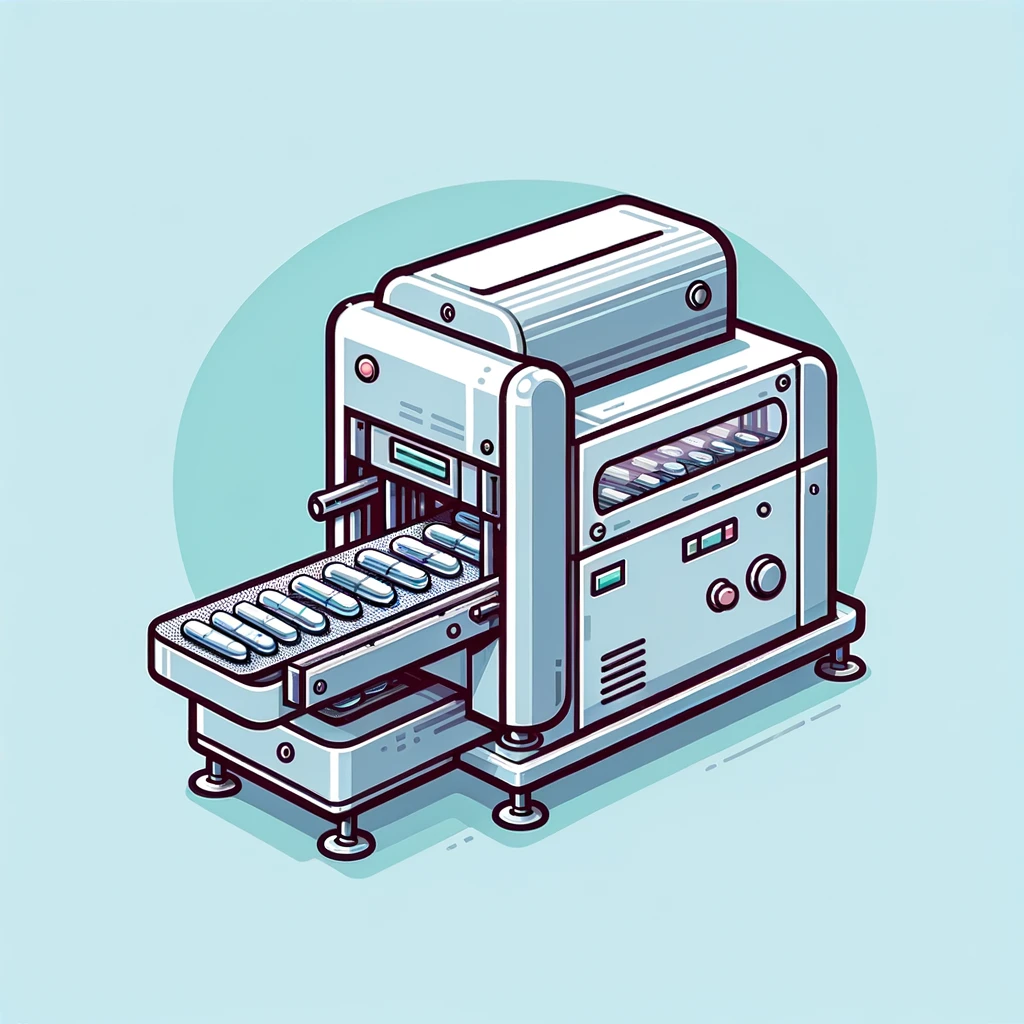
Part 4: Ensuring Efficiency, Safety, and Compliance through Maintenance
A. Efficiency
Regular maintenance significantly impacts minimizing machine breakdowns, thereby reducing financial implications associated with downtime and lost productivity. Ensuring that machines are always in their best working condition can directly contribute to the operational efficiency of the pharmaceutical packaging line.
B. Safety
Regular maintenance addresses potential safety hazards, such as loose parts and blockages, ensuring a safe working environment for operators. It also helps in identifying and rectifying any defects or failures in equipment in a timely manner, preventing injuries or more severe problems.
C. Compliance
Adhering to equipment operating instructions and maintenance guidelines is crucial for compliance with regulatory standards. This ensures that the blister packing machines are not only efficient but also compliant with industry regulations, maintaining the quality and safety of pharmaceutical products.
Conclusion
The importance of regular maintenance and cleaning in ensuring the efficient, safe, and compliant operation of pharmaceutical machinery cannot be overstated. By adhering to maintenance schedules and procedures, operators can extend equipment life, ensure product quality, and maintain production efficiency. This commitment to maintenance is essential for the pharmaceutical industry to meet its responsibility to provide safe and effective medications to consumers.
